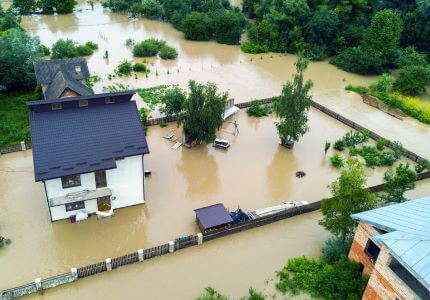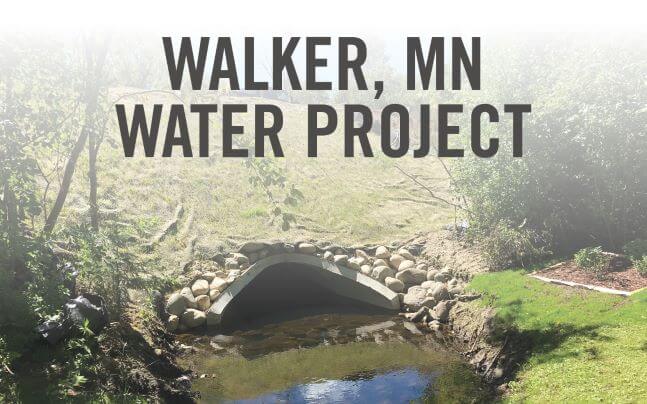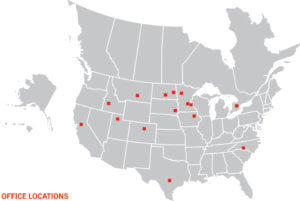Disaster Recovery Planning: Safeguarding Our Water Lifeline

April 12, 2024
Disaster recovery in the water sector is a critical component of community resilience. It ensures the continuity of services that are essential for health, the environment, and the economy. When disaster strikes, the ability to respond swiftly and restore functionality is not merely a convenience, it is a lifeline.
Disaster recovery planning for water and wastewater SCADA requires a holistic and proactive approach with the implementation of a documented process. It’s about ensuring our infrastructure is prepared for anything, from extreme weather events to technological failures. Keep reading to learn best practices for SCADA disaster recovery planning.
Take a Calculated Approach to Disaster Recovery
Effective recovery demands a thorough understanding of the risks and the development of strategies tailored to meet them. Slawek (Swav) Wolski, Ulteig’s Senior Systems Integration Specialist, emphasizes the importance of preparation. “Our goal is to anticipate challenges and ensure that water services can withstand any disaster, serving communities reliably when they need it the most.”
Swav notes, “We assess risks from multiple angles to safeguard water services against potential disruptions.” This multi-dimensional approach includes integrating cutting-edge technology and maintaining stringent testing protocols to ensure consistent service delivery.
According to Swav, “It’s about being proactive, not just reactive. Solutions must stand the test of time and the unexpected.” This philosophy drives the creation of disaster recovery plans that are not only responsive but also preventative.
Develop Resilient Infrastructure for Sustainable Communities
Building resilient water infrastructure is a critical aspect of ensuring the sustainability and long-term viability of communities. Resilient systems are designed to withstand disturbances, adapt to changing conditions and recover rapidly from disruptions. Disaster recovery plans must take unique, site-sensitive needs into account, and be as varied as the communities they serve. “Every community is unique,” Swav says. “Our plans are designed to fit the specific needs and recovery objectives of each client.”
In addition to considering local idiosyncrasies, effective disaster recovery hinges on collaboration across various sectors and professionals. Engaging with IT professionals, SCADA managers, engineers, communications and policymakers is essential. “We engage in meaningful dialogue with infrastructure guardians,” states Swav, reinforcing the idea that building resilient water services is a collective effort.
“True disaster recovery planning incorporates the complexity of electrical, networking and software elements that support our infrastructure,” emphasizes Swav, pointing out the need for a comprehensive and multifaceted approach to resilience.
Durable water infrastructure is fundamental to the economic and social stability of a community, supporting everything from public health to local industry. Developing them is essential for future-proofing communities against a variety of challenges, including the growing threats posed by climate change.
Embrace Innovation for Future Adaptability
As environmental conditions evolve, so must our approach to infrastructure resilience. “Adaptability is a key aspect of our strategy, ensuring that our water systems can cope with today’s challenges and those of the future,” says Swav. This involves leveraging innovative technologies and practices, such as smart water systems and robust data analytics, which can enhance the efficiency and responsiveness of water services.
Investing in such advanced systems is not merely a protective measure but a strategic one that offers long-term benefits. By prioritizing resilience, communities can safeguard their water services, ensuring a reliable supply in the face of unforeseen events and contributing to the overall sustainability of their infrastructure.
Create a Robust Disaster Recovery Plan
While the specifics of disaster recovery can be complex, the goal is simple: to ensure that communities have access to reliable water services, no matter the circumstances. The experts at Ulteig are working to design and implement strategies that protect this critical infrastructure, safeguarding water services against future threats.
For more information on how specialized knowledge and expertise can contribute to enhancing your community’s water services disaster recovery plans, Contact us today.
WHAT MAKES ULTEIG DIFFERENT?
From global energy producers to locally funded cities and private developers to government agencies, the clients we serve encompass a broad range of relationships and projects. Find out why Ulteig is a leader in the engineering industry.
Contact Us



